Brief Introduction
The development consisting of harmony of the human being with self, family, society, and nature can be called ‘harmonious development’ (“शाश्वत विकास”). The obstacles that come in the way of the harmonious development of a nation can be called national challenges or national issues. Such national issues are often complex, multifaceted, and tenuous. To achieve harmonious development, we have to understand the complexity of these issues and find directions towards solutions. Coordinated and consistent efforts have to be made in these directions. To enable personal and societal behaviour towards harmonious development, it is necessary to design and create coherent and complementary structures. To achieve this, a holistic approach, comprehensive skills, and an integrative attitude are required. Social Sciences Study Centre (SSSC) (सामाजिक शास्त्र अध्ययन केंद्र) is intended to inculcate, nurture, and develop these things. The interdisciplinary (multi-disciplinary or transdisciplinary) learning and study required for this will be enabled through the process of exposure, participation, training, taking challenges, and integration.
Work Statement
To develop the holistic approach, comprehensive skills, and integrative attitude required for harmonious development (development with harmony of human being with self, family, society, and nature) in citizens through the study of social sciences and to create enabling structures and systems.
Priority Directions and Areas of Work
Jnana Prabodhini’s work is carried out in various directions. The work of SSSC will be done primarily in the direction of national integration, then in the direction of quality development for working as a team and conducting research. The root causes of various national issues can be categorised into a person’s disharmony with self, society, and nature. SSSC is working for harmonious development.
To lay the foundation of national unity, there is a need to strengthen awareness and understanding in society about the harmonious development of the country and national issues. There has to be a team of volunteers (karykartas) who can not only relate to the dream of harmonious development but also create awareness about it among youth and citizens. This team should be able to inspire, motivate, and develop abilities in them to achieve this futuristic dream. This team needs to be willing to study, make efforts, experiment, and learn from experiments.
To find solutions for harmonious development and for overcoming national issues, methods of interdisciplinary study and research have to be developed. Such methods have to be experimented with and theorised. This can be achieved by the combined efforts of youth and citizens who want to work on national issues and their organisations. It is a kind of teamwork.
For such a collective effort, an ideology of ‘Adhyatmik Rashtrayog’ that is compatible with the current era, inclusive, and connecting all will have to be formulated. Experiments based on this ideology will be realised for harmonious development and nation-building through dialogue in society.
Key national Issues: 1. Poverty and Inequality 2. Lack of national integration 3. Lack of harmonious development
Key areas of work: 1. Value-Based Economics; 2. Philosophy; 3. Evolution of Consciousness 4. Spaces of harmony between religions (economic and social dimensions) 5. Use of technology to solve national or social problems: application considering technology, human intelligence, and social conditions 6. Constitution: Building bridges between constitutional and cultural aspects of nationalism
Objectives
-
- Bringing conceptual clarity to the interrelationship between the study of social sciences, national issues, and harmonious development: To bring conceptual clarity to understanding the harmonious development of the country, the experiments conducted in that direction, and the obstacles to it. By clarifying them, we can find the key points in the process of studying and teaching social sciences from that point of view.
- Comprehensive study of national issues and creation of literature for carrying out dialogue on the same: To find out the direction of answers to some of the national issues, study in depth the various dimensions, their interrelationships, and viewpoints towards those issues.
- Study and synthesis of solutions to national issues: To study the efforts made by individuals and organisations working for harmonious development. To study their responses, characteristic approaches, and effective ways of working. Seeing the synergy between the ways they have taken for solutions, to synthesise and develop immediate and long-term solutions for these national issues.
- Connecting youth and creating awareness among them about harmonious development and national issues: Taking note of groups that should be involved in working towards harmonious development and reaching out to them through various channels. To make them aware of the national issues and various dimensions involved by bringing to their attention their connection with those issues and the required participation in the solutions.
- Capacity, skills, attitude, approach, and networking of youth for harmonious development: To inculcate in youth the necessary capacities, skills, approaches, and attitudes to understand the complexities of national issues and find solutions to them. To create structures and systems for the same. To continue working towards solutions by learning from each other by networking and organising youth who want to work on complex national issues.
- Formulation of an ideology that gives a perspective on harmonious development: To formulate ‘Adhyatmik Rashtrayog’ as an ideology that gives a perspective of harmonious development.
Ongoing and Potential Activities
-
- SSSC has ongoing research in the following areas, and has engaged four interns for research assistance in June 2024: Research Topics Click Below to Download
-
- Critical Thinking Course and Workshops
This course was developed under the guidance of Dr. Savita Kulkarni, who has done her PhD in Critical Thinking, and Dr. Deepak Gupte, along with Amol Phalke and Dr. Aditya Ponkshe. Critical Thinking is a 2-credit NEP-compliant academic course for undergraduate and post-graduate students of any academic stream. - The course titled “Fundamentals of Critical Thinking” has been regularly offered at the Ranade Industrial and Economic Institute for students of the Master of Arts in Mass Communication and Journalism (MAMCJ) programme.
- A 15-hour workshop based on this content was also conducted for students of Disom Foundation (Assam), students of Jnana Prabodhini Institute of Psychology’s Diploma in School Psychology program, members of Jnana Prabodhini’s Youth Wing (युवक विभाग), and Leadership Development Centre.
- The centre conducted the Introductory Critical Thinking workshop on October 9th–10th, 2024, for postgraduate students of the Leadership, Politics, and Governance program. Organised by IIDL, RMP (Indian Institute of Democratic Leadership, Rambhau Mhalagi Prabodhini, Thane), this two-day (12-hour) session introduced fundamental concepts of critical thinking.
-
The Advanced Critical Thinking workshop (February 3–5, 2025) for RMP, Thane, built upon the introductory workshop by focusing on argument building, ethical dilemmas, and problem-solving.
-
On 30 December 2024, a 3-hour Critical Thinking workshop for teachers from the Humanities domain of IISER Pune was organised.
-
A two-credit course on Critical Thinking for selected BA and MA students (Journalism and Communication) of Dwaraka Doss Goverdhan Doss Vaishnav College (DDGDVC), Chennai, began on February 12, 2025. The course started with a three-day offline workshop at the college, attended by 50 students. The workshop was conducted by Mr. Amol Phalke, Dr. Savita Kulkarni, Dr. Vivek Kulkarni, and Dr. Deepak Gupte. The remaining sessions were conducted online in March 2025.
-
For the second time, the course on Critical Thinking included a four-day (24-hour) offline workshop held from December 16th to 19th, 2025, attended by 31 selected students from the B.A. and M.A. programmes of DDGDV College. The workshop was conducted by Dr. Savita Kulkarni and Mr. Amol Phalke and included several activity-based sessions. The remaining sessions will be conducted online.
-
A 2-credit course on Critical Thinking (30 hours) was conducted by Mr. Amol Phalke, for 71 first-year B.A. Psychology students at DES Pune University. The course structure included 24 one-hour sessions and 6 hours of assignments. It was an interactive and activity-driven program that actively engaged the students throughout.
-
A four-day workshop on Critical Thinking (CT) was conducted from 30th May to 2nd June for the 3rd cohort of Disom – The Leadership School, an initiative for aspiring socio-political leaders, at Bodhigram, Dehradun. 23 participants (aged 22–47) from diverse backgrounds and states across India (including MP, Maharashtra, Telangana, Manipur, Jharkhand, Assam, Karnataka, Kerala, Gujarat, J&K, and UP) took part. Key CT concepts, their application in the field, and the journey from ‘critical thinking to critical being’ were explored through activities, role plays, audio-visual material, and case studies. The workshop saw sincere and wholehearted participation, fostering co-exploration and co-learning. The workshop was primarily facilitated by Dr. Savita Kulkarni, Mr. Deepak Gupte, and Mr. Amol Phalke, with Dr. Vivek Kulkarni as mentor and Mr. Biren Bhuta as Disom coordinator.
- Critical Thinking Course and Workshops
-
- Arthashastra Katta – The purpose of Arthashastra Katta is to go beyond the usual educational methods to study economics in depth, to understand its nuances, to increase the interest and taste of economics among the members, to understand the relationship of economics with other social sciences, and to understand how economic concepts are implemented. Various interactive sessions and activities will be planned for this purpose. Various concepts in economics, discussions to understand the economic dimensions of different countries’ issues, exhibitions on some topics, projects/essays/paper competitions will be planned. The Katta will be open to all age groups from college age onwards. Formal principles in economics will be primarily considered in this presentation and discussion. Along with that, the principles of other social sciences – sociology, psychology, and political science – will also be considered.
The first Arthashastra Katta on the topic “Unlocking India’s Budget” was held on Saturday, 10 August, 2024, 6.30 PM to 8 PM, in Prabodh Sabhagruh, Jnana Prabodhini, Sadashiv Peth, Pune. Piyush Ozarde, PhD Student at IIM Ahmedabad and Assistant Head, JPCEC, and Vaibhavi Pingale, PhD Student at Gokhale Institute of Politics and Economics and Founder, Tatvita Analysts, conducted the discussion. - Samajik Shastra Katta – The “Analysing the Union Budget: Data, Trends, and Qualitative Insights” workshop, held on 02/02/2025 at Jnana Prabodhini, saw a turnout of 20 participants from various academic fields. Led by Mr. Piyush Ozarde and Mr. Ishant Deshmukh, with support from Ms. Vaibhavi Pingale, the session covered the basics of the Indian Union Budget, key economic indicators, and important government schemes. Participants also took part in practical activities like extracting budget data, analyzing trends using Excel, and exploring links between different national schemes. The workshop received positive feedback, with many looking forward to a follow-up session for deeper discussions and presentations.
-
Responding to the interest generated by the first workshop, SSSC organised a “Budget Pe Charcha” session on 23rd February 2025 at Jnana Prabodhini. Building on previous discussions about budget fundamentals, this follow-up session delved deeper into Union Budget 2025-26 insights, emphasizing data-driven analysis and sectoral trends. Key topics included the fiscal deficit (presented by Shubham Thorat), manufacturing and private investment (discussed by Ishant Deshmukh), and welfare schemes like NREGS and PM-KISAN (explained by Mr. Piyush Ozarde). Mr. Piyush Ozarde also highlighted recent trends in fund allocations for minor schemes under the Cooperative and Agriculture Ministry. Ms. Vaibhavi Pingale provided comprehensive business and investment insights, covering sectors such as agriculture, infrastructure, and MSMEs. The session concluded with Mr. Shashishekhar Chaugule’s presentation on taxation, focusing on the middle-income class, followed by an engaging Q&A session that saw active participation and positive feedback.
- Arthashastra Katta – The purpose of Arthashastra Katta is to go beyond the usual educational methods to study economics in depth, to understand its nuances, to increase the interest and taste of economics among the members, to understand the relationship of economics with other social sciences, and to understand how economic concepts are implemented. Various interactive sessions and activities will be planned for this purpose. Various concepts in economics, discussions to understand the economic dimensions of different countries’ issues, exhibitions on some topics, projects/essays/paper competitions will be planned. The Katta will be open to all age groups from college age onwards. Formal principles in economics will be primarily considered in this presentation and discussion. Along with that, the principles of other social sciences – sociology, psychology, and political science – will also be considered.
-
On March 22, 2025, the centre conducted a session on “Personal Financial Planning”, led by Mr. Amol Sugandhi, with 21 participants actively engaging. The attendees came from diverse age groups, ranging from college students to mid-career professionals and experienced working professionals. Topics like Cash Flow Analysis, Taxation Planning, Debt Management, Risk Profiling, Investment Planning, and more were discussed. Designed to be interactive rather than a one-way lecture, the session encouraged attendee participation through activities such as budget control exercises and financial goal setting. Toward the end, participants raised questions on fund allocation, insurance planning, and education loans, leading to a productive discussion.
-
From October 26th to 30th, 2025, JP-SSSC, Pune, organised a five-day interactive series on Madhyasth Darshan (Philosophy of Coexistence), conducted by Shri Yogesh Shastri. The sessions explored harmony and happiness within oneself, the family, society, and nature through a dialogue format.
A total of 22 participants from diverse backgrounds attended the series, which kindled a deep interest to learn more and applying these ideas in everyday life. The Darshan aligns closely with the vision of JP-SSSC and also forms the foundation of Universal Human Values courses offered in higher education by AICTE. Session notes and reference material were shared, and follow-up sessions are planned.
-
Other potential activities include study groups for interdisciplinary understanding of all social sciences; study tours; workshops or courses for developing competencies, skills, approaches, and attitudes; literature creation (magazines, articles, and booklets), lecture series, projects, etc.
-
Members
-
- Amol Phalke – Coordinator
- Subhashrao Deshpande – Mentor
- Ashutosh Barmukh
- Aditya Ponkshe
- Piyush Ozarde
- Amol Sugandhi
- Shashishekhar Chaugule
- Ishant Deshmukh
Summer Interns 2024
- Chinmayi Masurkar
- Dhaneshree Kandalgaokar
- Sahil Joshii
- Sayali Patil
Summer Interns 2025
- Aastha Karhale
- Asmita Shirose
- Atharv Zol
- Harsha Kumavat
- Riya Raheja
Gallery
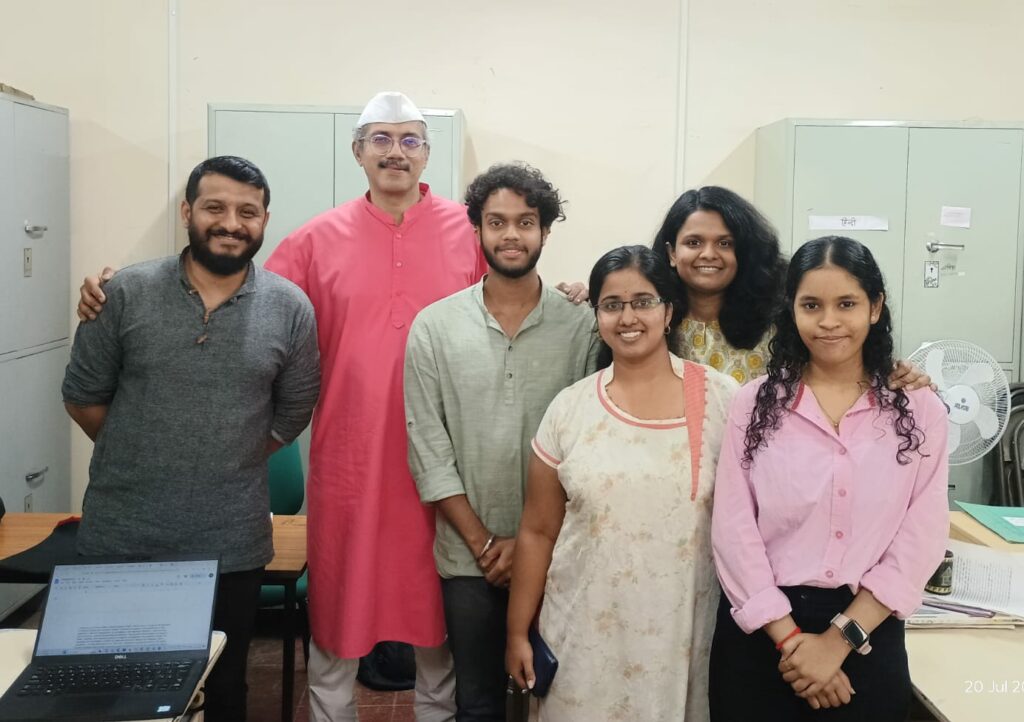
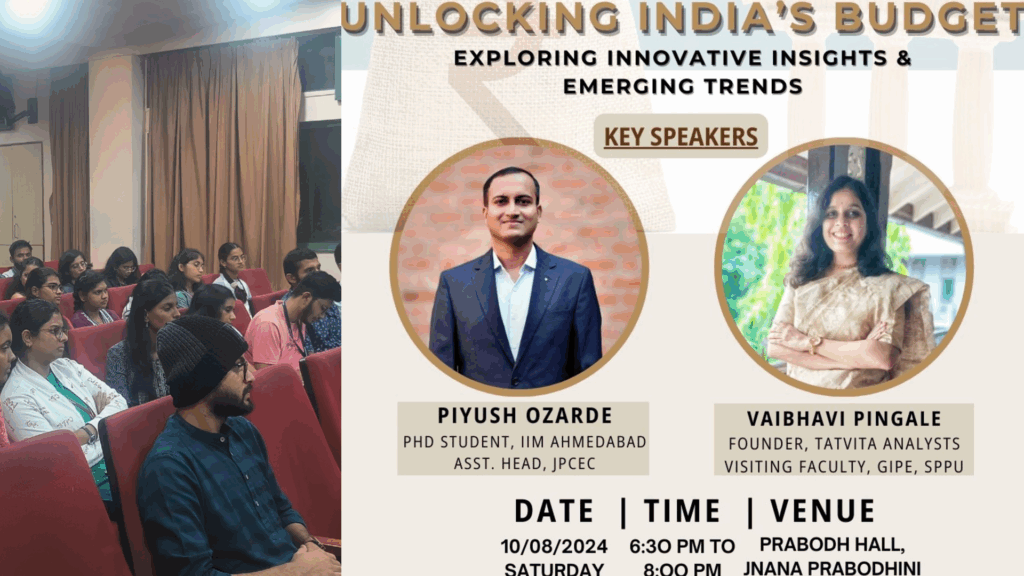
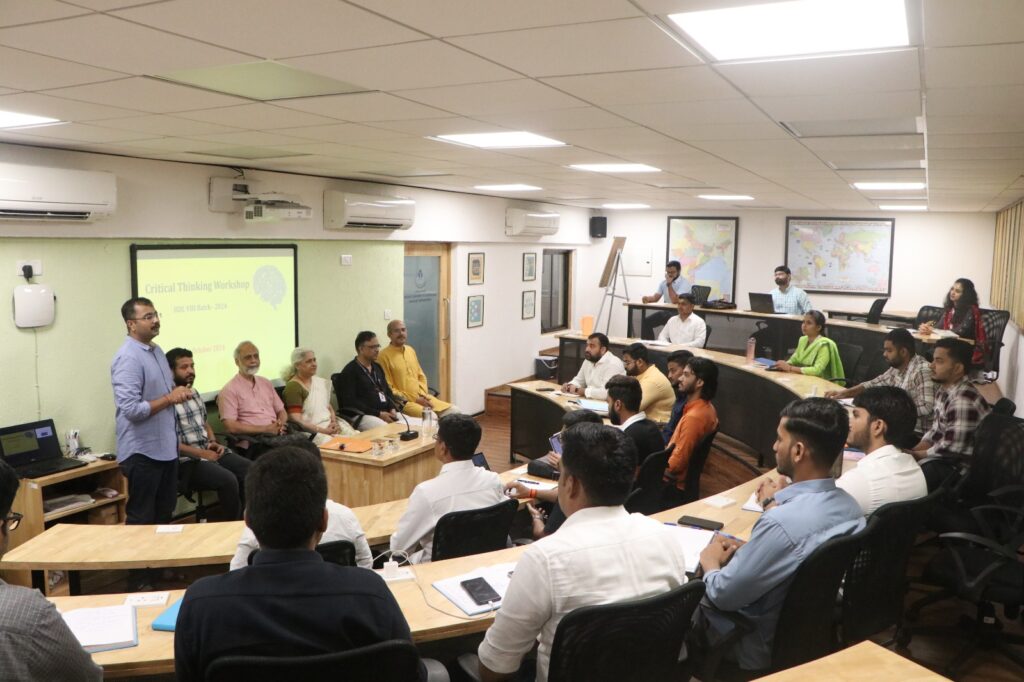
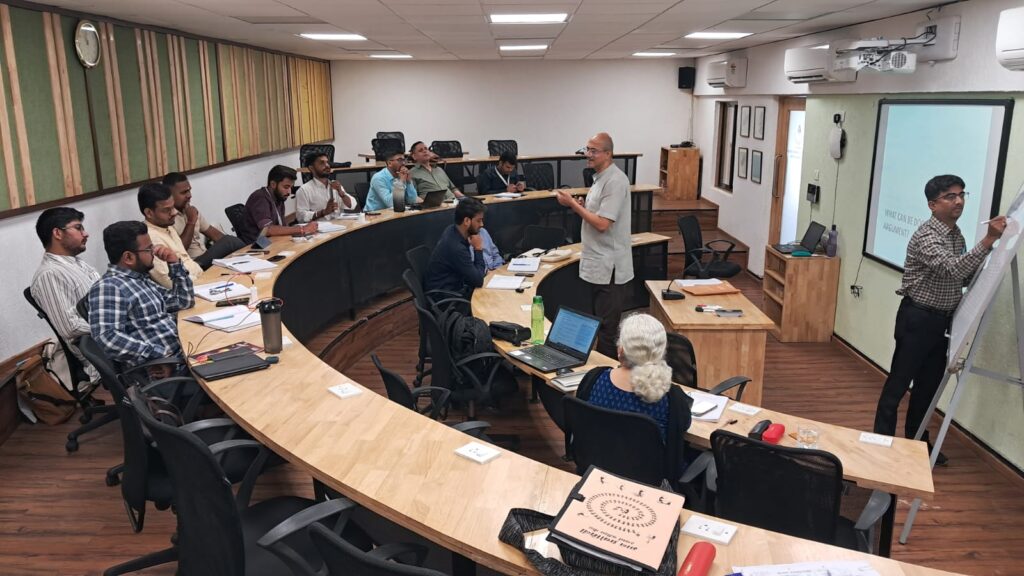
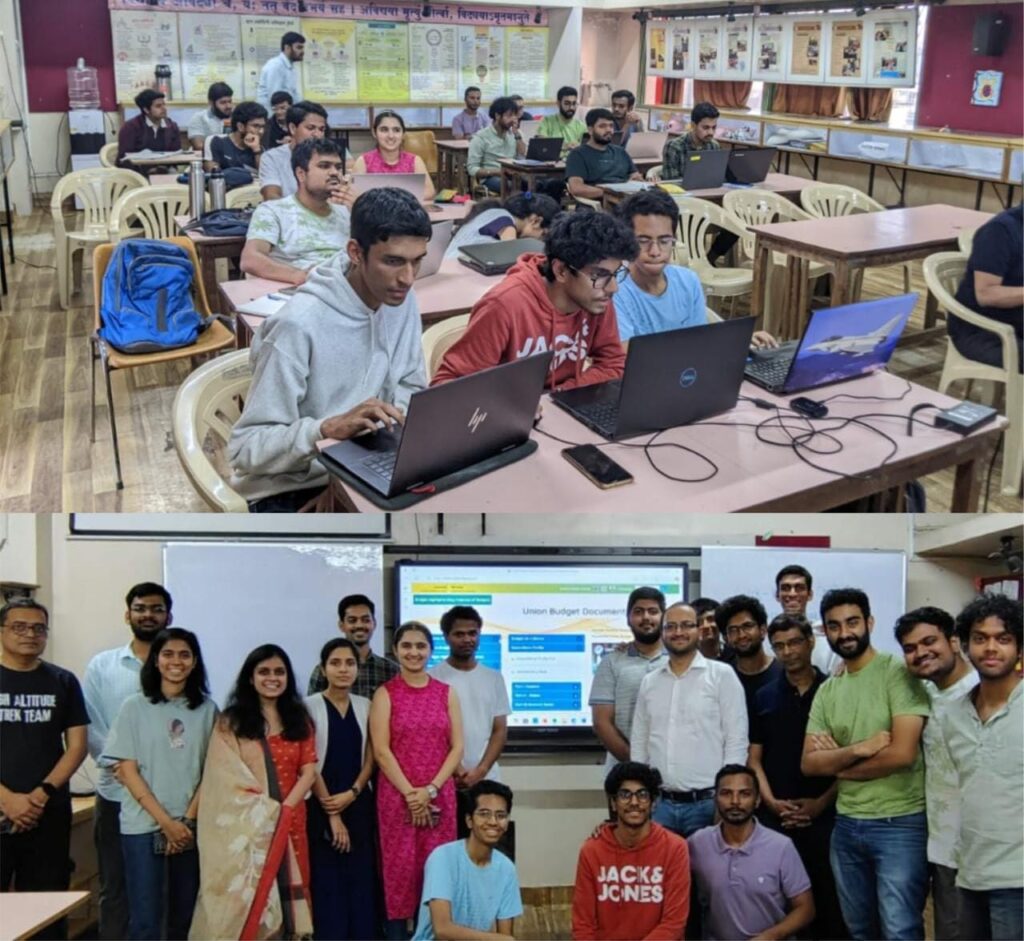
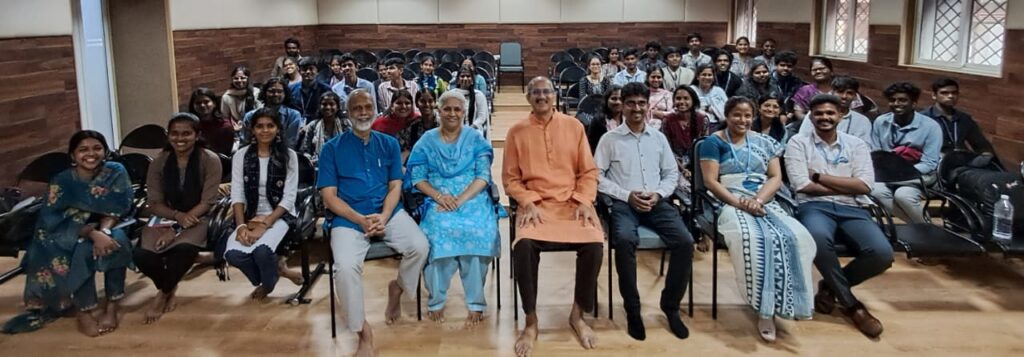
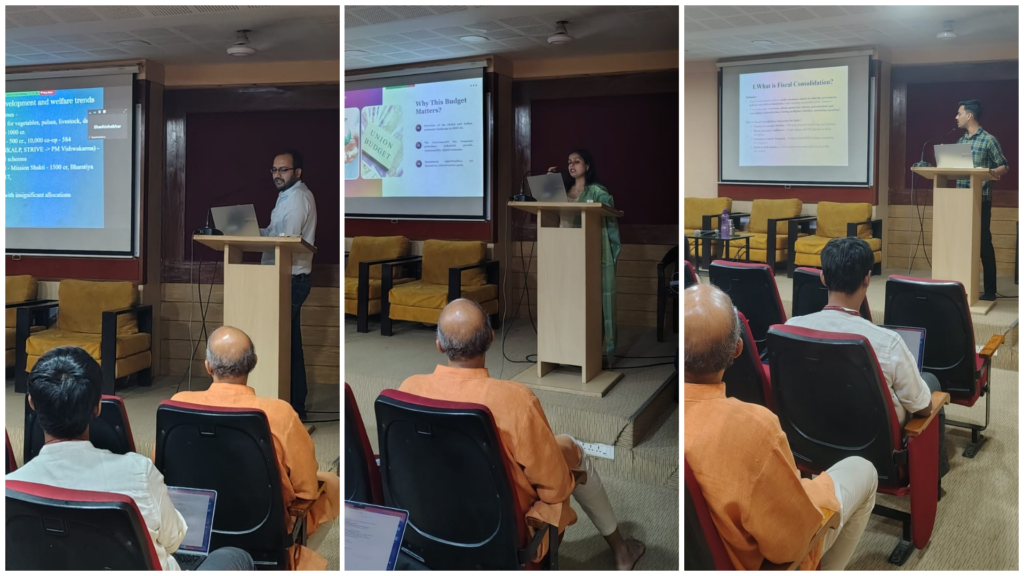
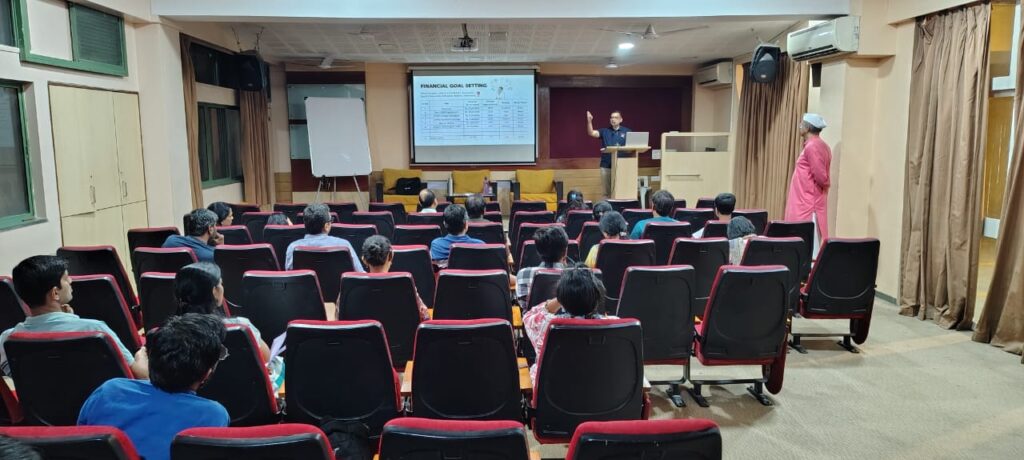
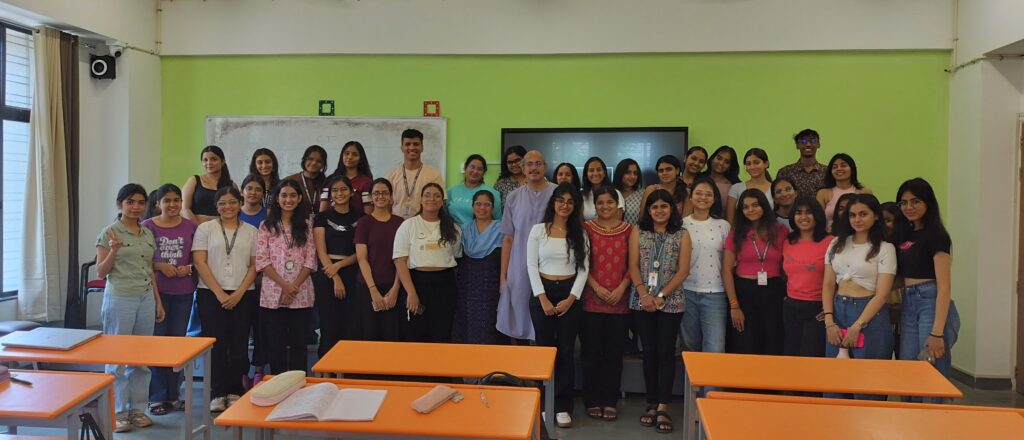
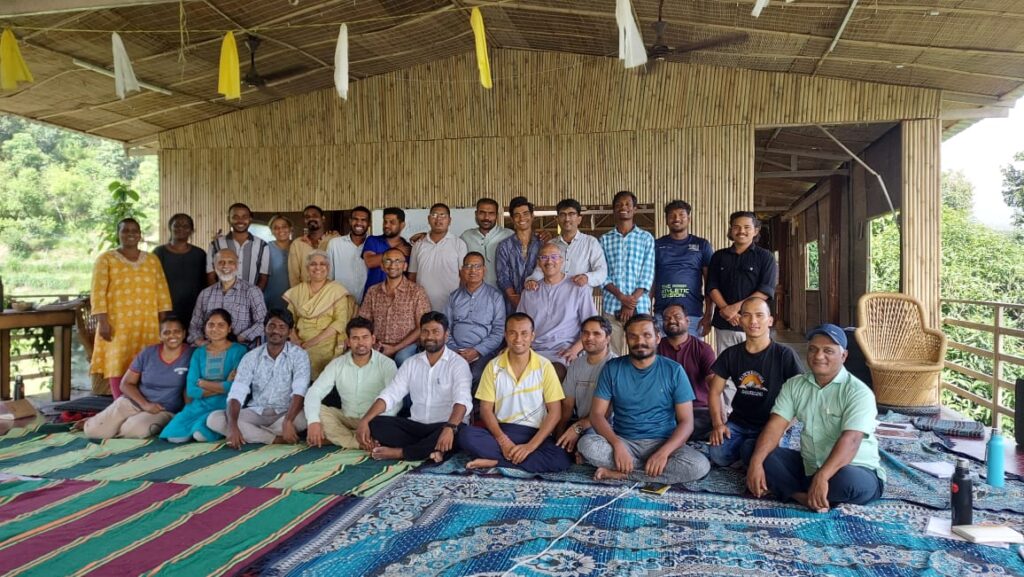
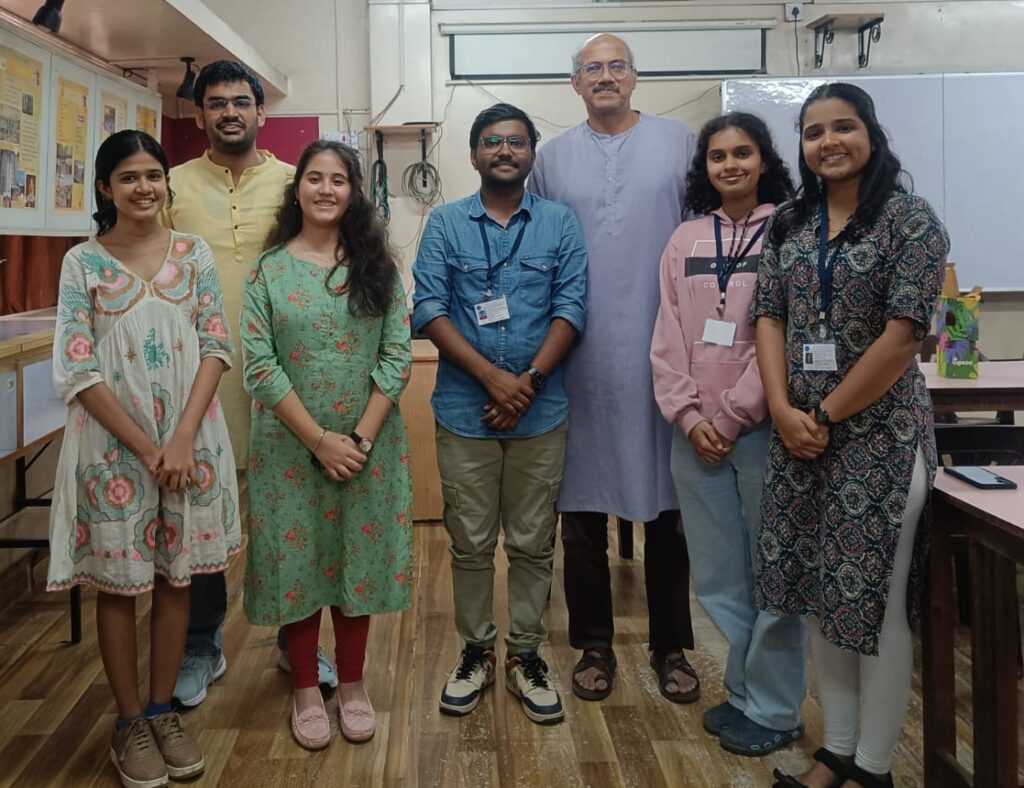
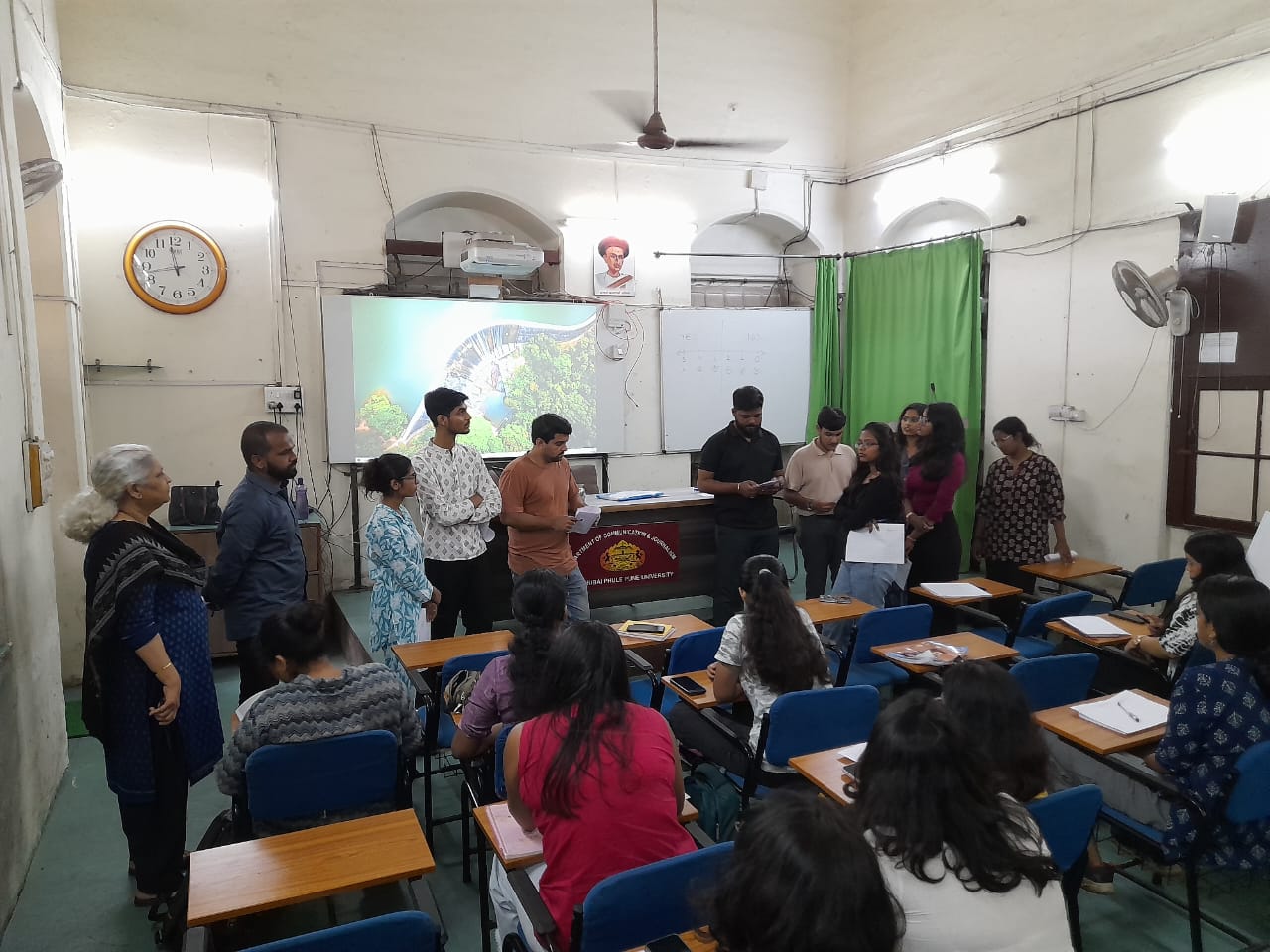
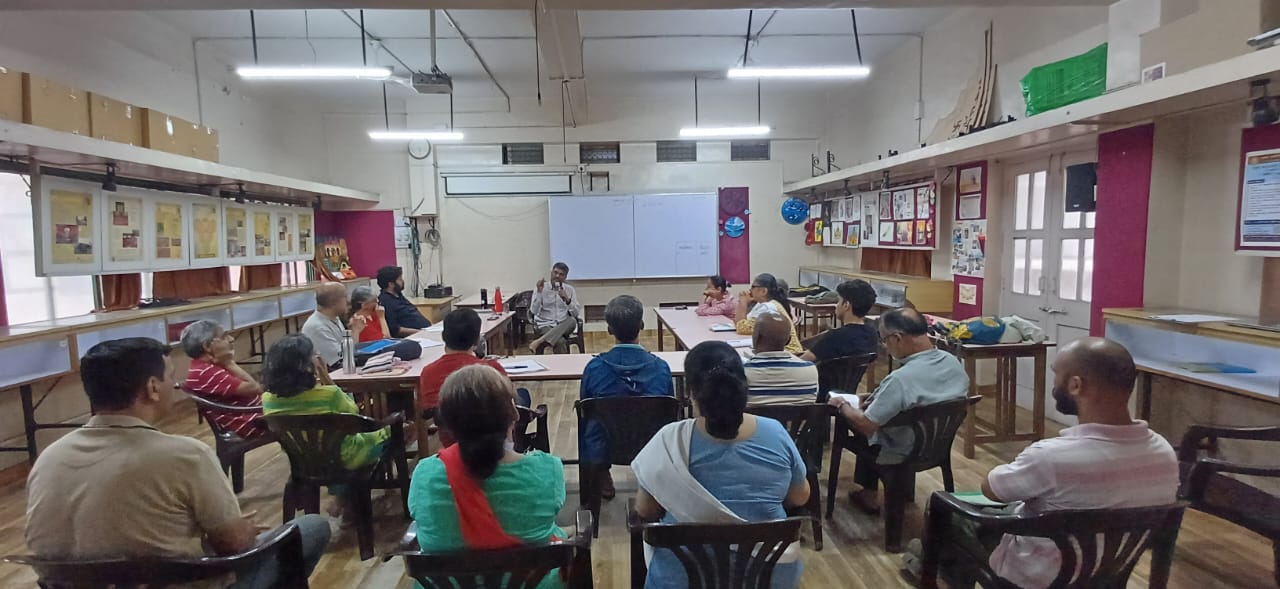
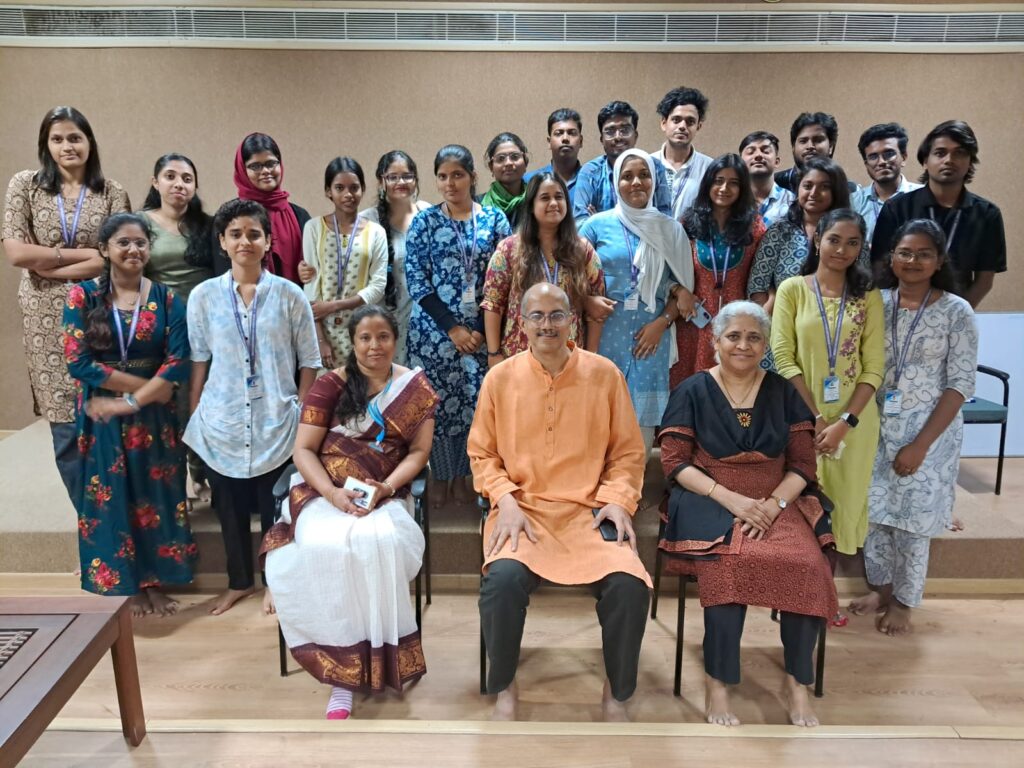
Blogs

Making Sense of GST
This year, the government has rolled out a broad wave of economic reforms – from changes in personal income taxation to stepped-up trade negotiations with

A Fair Share? Finance Commission’s Resource Distribution Through the Eyes of Experts
So far in this article series, we have discussed the role of the Finance Commission (FC), the methodology used by the 15th FC that has

The New Geopolitics of Conflict: Identity, Territory, and Trade
From the towering mountains of the South Caucasus to the evergreen forests of Southeast Asia, conflicts worldwide are shaped by distinct histories and geographies. Yet, when

Mutual Funds – Investment Returns vs Investor Returns
Do you rely on the returns that the mutual fund shows you, or do you calculate the returns yourself? If not, then try doing it
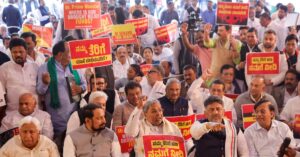
The Southern States’ Case for Fair Resource Allocation
The previous two articles explored the Finance Commission’s framework and tax distribution criteria while also briefly highlighting the conflicts these distribution parameters have sparked. They also

Tax Devolution in India: The Debate Over Formula
Our introductory article examined the origin, functions, composition, and core principles of the Finance Commission (FC), including the concepts of the divisible pool and grants-in-aid. Building on
